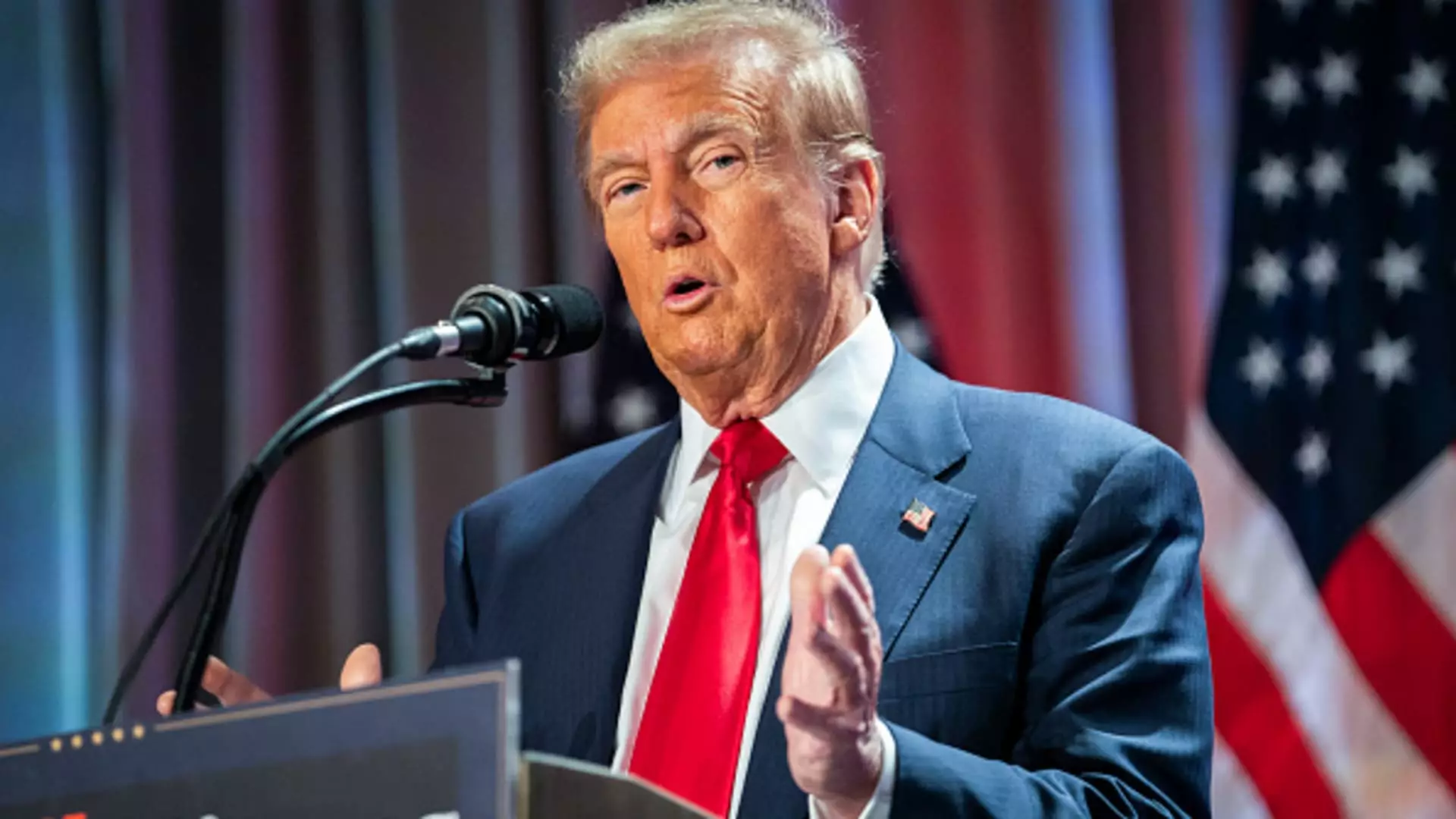As the political winds shift following the election of President Donald Trump, investors are faced with an evolving economic scenario marked by potential inflationary pressures. John Davi, a well-regarded money manager and CEO of Astoria Portfolio Advisors, has been vocal about the implications of the incoming administration’s tariff policies. Davi’s insights prompt a careful reassessment of investment strategies, emphasizing the need for caution in an unpredictable market influenced by political decisions.
Davi’s strategic focus leans towards small-cap industrials as opposed to their large-cap counterparts. His reasoning stems from the belief that smaller companies are more resilient in the face of Trump’s proposed pro-growth policies, which aim to bolster domestic production. This perspective aligns with recent market trends; since the election, the Russell 2000 index, a barometer for small-cap stocks, has seen a notable increase of approximately 4%. This surge suggests that Wall Street is beginning to favor smaller enterprises as key beneficiaries of the anticipated economic landscape.
Domestic Investments Amid Tariff Risks
Despite potential pitfalls that tariffs might present, Davi remains optimistic about investing in the U.S. market. His assertion of being “overweight the U.S.” echoes a broader strategy that prioritizes domestic assets in the current climate. Davi believes that the next two years will play a pivotal role in shaping the economic direction under Trump’s leadership, with the administration likely to push forward its policy agenda. His insights highlight an essential trend: while tariffs introduce uncertainty, the domestic focus may provide a buffer against global market volatility.
While equities, particularly in the small-cap segment, appear promising, Davi urges caution regarding fixed income investments. His concerns center around the burgeoning federal budget deficit, which could have detrimental effects on bond markets. The rise in the yield of the benchmark 10-year Treasury note by about 3% post-election signals a shift in investor sentiment toward bonds. Davi’s prudent advice to be careful with bonds reflects a growing anxiety over the long-term viability of such investments in an era of increasing government spending and potential inflation.
Navigating the post-election economic landscape requires a discerning eye and a strategic approach to investment decisions. John Davi’s analysis underscores the necessity of adapting to current events while remaining vigilant about the risks inherent in various asset classes. By focusing on small-cap industrials and maintaining a domestic orientation, investors could position themselves favorably in what promises to be a dynamic and challenging financial environment. As the political landscape continues to evolve, careful selection of investment strategies will be crucial in safeguarding portfolios and capitalizing on emerging opportunities.


Leave a Reply